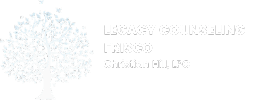
Me: Before we dive too much into the topic of self-harm, tell us a little bit about you and your current season of life.
Amy: I am currently a stay at home mom. I have 4 daughters and I am married to my high school sweetheart, we’re about to celebrate 10 years of marriage this summer. Our current season of life is the army life, so that’s a changing world for us everyday.
Me: Amy, tell us a little about your childhood and the family you grew up in.
Amy: I was born and raised in Colorado. I grew up in a somewhat messy household. I had my dad, my mom and my older sister. My parents got divorced when I was around the age of 7. My dad quickly remarried and I gained my “step-monster” and they moved to California shortly after. Around 13 my sister moved out to California to be with my dad. Throughout my childhood I’d struggled with anger issues, depression, and anxiety. These things increased after my sister moved away and my mother became a full blown alcoholic. I was forced to somewhat raise myself from there. At 15 after meeting my now husband, I got pregnant and was kicked out of my house. At 16 I became a mom, living with my husband and his family. After I graduated high school at 18 we moved away to South Dakota to be closer to my husbands extended family, as all our parents had turned to excessive drinking at that time. That’s a quick glimpse at my childhood and some important events.
Me: Thank you. As you know, today’s topic is about self-harm and trying to find ways parents can be more helpful if their child is self-harming. Can you tell us a little bit about the first time you self-harmed and what events or situations led up to hurting choosing to hurt yourself?
Amy: The first time I self-harmed I was in 6th grade, so around 11/12. I was lost, lonely and hurting and no one around me cared, or seemed to. It started as a way to “show” what I was feeling on the inside. I wasn’t super subtle about hiding it at the beginning. My mom was working long hours and going to college at night so I spent a lot of time by myself. My sister had no interest in being around me and preferred her friends, and my father had always been extremely absent. It was during this time that most of my mental health problems skyrocketed. I had always been somewhat violent towards myself even as a younger child as a form of punishment when I would get in trouble or feel bad, such as punching myself, pulling my hair, and banging my head on walls. Which looking back is also a form of self-harm, but I didn’t view it as such and I guess no one around me really did either. So, cutting seemed to simply be the next step in my unfortunate journey in self-harm.
Me: There is so much here for us to learn from. If I may, let’s deconstruct some of your statements so we can better understand. Let’s start with one of your last statements and work our way back to the beginning of your response. Can you talk more about, “I had always been somewhat violent towards myself”? Although this may sound unusual to some, unfortunately it is something I hear a lot so you are not alone in this. However, can you explain more of why you were so hard on yourself at such a young age, and what was driving this behavior?
Amy: I wish I could pin down exactly when or how it happened, but I’m unsure of where exactly it stemmed from. If I had to attempt to gather some backing towards it I remember being told very frequently throughout my childhood that I was “too emotional” or other ways of invalidating my feelings. I think that started building a negative rapport in my mind about emotions and/or feelings. It became that anytime I was in trouble or would get upset about something, I would tell myself I was being “too emotional” or “overreacting” so to try and correct myself I began punishing myself. I would feel so many emotions and when I self-harmed the pain would in a sense calm my brain. It would cause me to focus on that one sole emotion/feeling rather than the vast amount that had previously been running around my brain. I wasn’t taught healthy ways as a child to self-soothe.
Me: When you described your childhood and family situation, it seems that you felt very alone. If that’s true, what role do you think that feeling played into your self-harm behaviors and why?
Amy: I can say it definitely played a role in my self-harming. It unfortunately taught me that I had no one to lean on. Those I attempted to lean on didn’t understand. I was told my actions were “dumb” and “selfish”. This caused me to further shut down and isolate into my own world. Self-harming became a comfort. It was constant and always brought me relief. Even as an adult I still have an extremely hard time speaking my true emotions, even to my husband.
Me: How much of your first time harming yourself, if any, had to do with attention? Not in the superficial way that most people think about attention, but maybe as a way to make you less invisible to your family and everyone else, or even attention in the sense of hurting yourself as a cry out for help?
Amy: It wasn’t solely attention, but that was definitely a component. I’ve always said the beginning was a cry for help. My sister was trying to move, my mother was leaning more into alcoholism, my dad was no where to be found, and my friendships were failing. As a child my world was crumbling and no one seemed to notice. I was willing to bring negative attention to myself just simply because negative attention was better than no attention. Obviously that didn’t benefit in anyway, but as a child it seemed to have made sense before it spiraled out of control.
Me: Amy, other than the obvious physical scars on your body, what other impacts did self-harm have on you? (mentally, socially, emotionally, spiritually)
Amy: That’s a big question, so if it’s okay I’ll break it down by the things you mentioned.
Mentally I’ve come to the conclusion that self-harm (although some may not see it this way) is an addiction. Therefore I’ve learned to try and avoid situations that may be triggering or to process, with a person I feel safe with or a counselor, to help find ways to safely work through those situations. I wish I could say that the thought of self-harm never crosses my mind anymore or that on rare occasions I don’t give way to it, but that would unfortunately be a lie. It’s not a constant in my life anymore and at times I can go years with no instances, but I feel it always lingers in the back of my mind and causes chaos from time to time. So, I feel mentally it’s caused it’s own scars that way, that will in some way always be there.
I think my emotions tie in a lot towards my mentality towards it. I have to remind myself to be cautious of how overwhelmed or “down” I get or just my mental state in general because if I don’t my emotions run a bit haywire. I’ve also slowly learned that punishing myself for my emotions or burying them can be detrimental. I only have a few select people I can feel safe being completely vulnerable with, but having that allows me to process in a healthier space than I had growing up.
Socially can be tough for me in certain aspects still. I still definitely keep distance from a lot of people, and those that I do let in, some get the full version of me and others still get a mildly buffered version. I’m still self-conscious at times with the scars and will avoid short sleeves and shorts from time to time. Self-harm and mental health in general I feel has made leaps and bounds from when I was younger, but I still panic that someone will judge me for my scars and especially being a mom now I get nervous of the “dumb” and “selfish” comments. On the other side I do try to share my story. I try to voice that it’s okay to struggle, that it’s okay to walk through these moments and that you can make it to the other side.
Spiritually for me personally — this journey I’ve been on has overall grown it, with a few ups and downs along the way. My faith has always been a part of my life and it’s a constant, but it can also be a constant that may not give me an immediate relief from my struggles, which can lead me astray sometimes. I’m glad that I have my faith though, I’m glad what I believe let’s me know that’s I’m never alone even when in the midst and it’s easy to feel that way. That knowledge has helped me get through a lot of times moving through my journey with self-harm.
Me: Amy in closing, could you answer these last 3 questions?
- What would you say to a young teen right now who might be struggling with self-harm and or self-destructive thoughts?
Amy: First off, I would tell them I’m sorry they’re hurting. I would tell them that like any decision they’ll make in their lives, this has different paths you can take. The scars you choose to make are permanent. Either way your choice shapes the person you’ll become. You are more worthy than the blade you hold or the terrible things your demons whisper in the dark. I would want them to know they’re not alone. That there are people to support them. There are people who struggle right along side them that can help lift them up and understand them when no one else can. Mostly, this is not where life ends. Your life is still a journey waiting to take you places you can’t imagine just yet.
- What would you like to share with a parent who has discovered their child has been self-harming?
Amy: Be kind. Stop, breathe, and take a step back. It’s common that as parents when our kids do things that are scary, we tend to react rather than respond. Although it feels like your kid is running out into traffic, you have to resist the urge to scream at them out of fear. It’s not a trend, it’s not a phase. They’re hurting and trying to understand where they’re coming from without dismissing their feelings is key. Also, don’t ambush them. Don’t force them into a corner to show you anything; their arms (or any part of their body they may self-harm), self-harming tools, etc. This is a time that can truly make or break a large piece of your relationship with your child. You can be an ally, or you can be an enemy.
- Please feel free to take the floor with any other closing thoughts that come to mind.
Amy: I just want to say I appreciate you interviewing me and allowing me to speak on this topic. This is something that still affects my life to this day, and I try to advocate and bring awareness whenever I can. The counseling I received as a teenager with you saved my life in a lot of aspects. I was able to learn healthy ways to cope and gained friends that, even though they shared my struggles, uplifted me and helped me navigate those early years of my battle. So, to anyone reading this that is struggling I just want to remind you, that you’re not alone, this struggle doesn’t have to define you, and you’re stronger than you realize.



